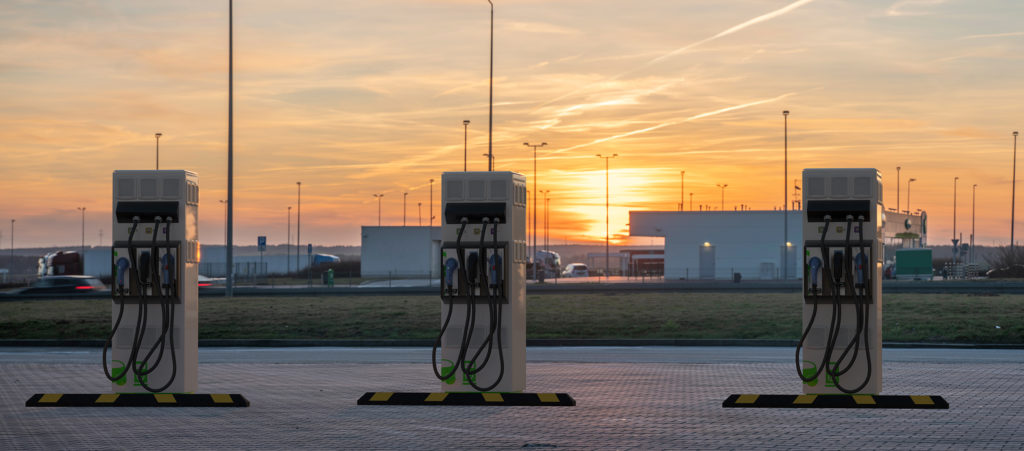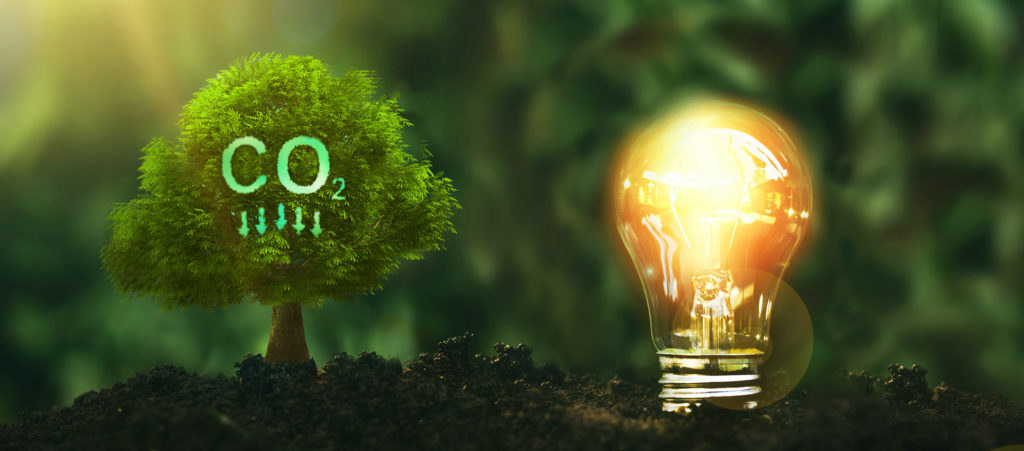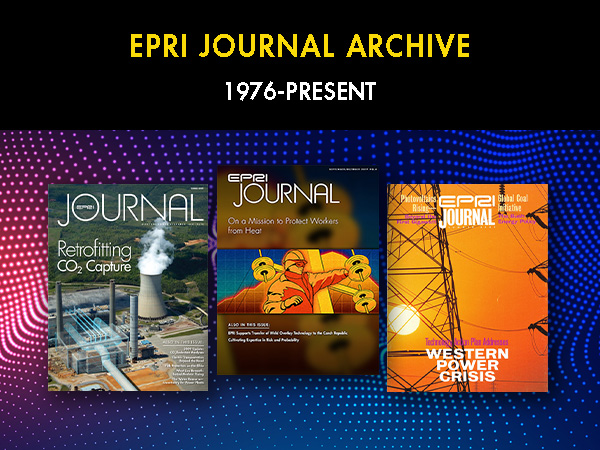EPRI’s new Equitable Decarbonization Interest Group aims to explore ways the clean energy transition can advance a more just society
The fundamental mission of the ongoing energy transition is decarbonizing the global economy to avoid the worst impacts of climate change. However, the need for massive investment to re-imagine how societies and communities produce and use energy—whether in the construction of wind turbines and solar panels or the deployment of smart meters to elevate the intelligence and interactivity of the grid—is also an opportunity to create a more just and equitable society.
“This is not just about how we make the energy transition itself more equitable, although that’s obviously a big part of it,” said Morgan Scott, EPRI’s sustainability and ecosystem stewardship research director, who spearheaded the creation of EPRI’s Equitable Decarbonization Interest Group last year. “Let’s think beyond the fair cost and benefit allocation of decarbonization investments. Are there also ways we can leverage this transition to create a more equitable society? Electric transportation can improve local air quality in heavily trafficked neighborhoods. Energy efficiency can lower energy burden for low-income households.”
Put more simply, the transition to a more distributed, intelligent, and decarbonized power system can be a vehicle for delivering environmental, health, and economic benefits to communities that have historically borne mostly negative consequences as a result of energy development. Changing that paradigm requires not just placing historically disadvantaged communities at the center of decisions about policies and investments designed to drive decarbonization but also having those communities actively participate in the process.
“There are opportunities to explore and enhance equity in the communities we serve,” said Kimberly Pickford, senior sustainability specialist at FirstEnergy and a member of the Equitable Decarbonization Interest Group. “For example, if there are plans for electric vehicle infrastructure in our areas, we would want to be sure equitable accessibility is discussed. It’s about engaging the stakeholders on the front end and considering their ideas in the decision process.”
Intensifying Focus on Equity
Increased interest in equitable decarbonization among utilities, policymakers, regulators, private businesses, and communities has roots in longstanding social movements. The modern environmental justice movement began in the 1980s, when Warren County, North Carolina residents protested the dumping of toxic PCBs in their communities. In the decades since then, a wealth of research has shown how inequitable the environmental and health impacts of industrial developments have been for low-income communities and communities of color.
A study published in the journal Science examined 36 years of particulate matter emissions data and found that while pollution levels have dropped across the U.S., poor and minority communities have seen the fewest benefits. Particulate matter pollution is associated with adverse health effects like cancer, lung and heart disease, infant death, and reduced life expectancy. Research released last year by the U.S. Environmental Protection Agency (EPA) revealed that people of color are exposed to higher levels of pollution, regardless of their income or where in the country they live.
Pollution disparities aren’t the only way inequality manifests itself in disadvantaged communities. Energy burden, which is the proportion of household income needed to pay for electricity, natural gas, fuel, and other forms of energy, is far higher in low-income homes than in wealthier households. According to the U.S. Department of Energy, low-income households spend 8.6% of their gross income on energy, compared to 3% for non-low-income households.
Renewed attention to historic inequalities surfaced by the COVID-19 pandemic have sharpened the focus on environmental justice and how the energy transition can be a tool for tackling it. Indeed, last year the incoming Biden administration issued executive orders directing the entire federal government to advance environmental justice, including establishing a goal that 40% of the benefits of federal investments reach marginalized communities.
There’s also movement in the utility sector. Across the U.S., states including North Carolina, Rhode Island, and Wisconsin are developing equity plans and metrics. The California Public Utilities Commission released an Environmental and Social Justice Action Plan in 2019 and updated it last fall. Washington updated its State Energy Strategy in December 2020 and devoted a chapter to the development of an equitable clean energy economy. Illinois is also leading efforts to establish energy equity metrics, offering an example of how policy can incorporate equal economic participation into the energy transition. Individual companies like Pacific Gas & Electric, Duke Energy, American Electric Power, and Dominion, among others, have issued statements and launched programs designed to raise awareness and drive progress towards equity and justice.
But a desire for a more equitable society is not the only driver of environmental justice efforts. The reality is that the ultimate goal of decarbonization simply can’t be met if its benefits and costs aren’t shared equally. “We won’t achieve economy-wide decarbonization unless we bring everyone along and don’t leave anyone behind when it comes to the benefits of decarbonization,” said Brenda Brickhouse, who leads the EPRI interest group and formerly worked as chief sustainability officer at the Tennessee Valley Authority (TVA). “Fair treatment and meaningful involvement of all people regardless of race, ethnicity, and income are critical to this transition.”
Answering Questions, Sharing Knowledge, and Spurring Action
Recognizing that there is a unique opportunity to advance fairness and equity through decarbonization is an essential start. But utilities face a steep learning curve around the tools, programs, and community conversations needed to advance and measure progress towards equitable decarbonization. EPRI’s Equitable Decarbonization Interest Group was launched with the goal of bringing together utilities, policymakers, regulators, academics, communities, nongovernmental organizations, and others to learn from one another, share leading practices, and identify needed research that will support better decisions and programs that advance equity.
During its first year of operation, the Equitable Decarbonization Interest Group hosted a series of technical workshops and speakers to explore a wide range of topics, including the digital divide, metrics and tools, and modeling and policy. Presentations and recordings from technical workshops and the group’s speaker series are available here.
“It’s about informing members but also about elevating the conversation,” Brickhouse said. “We are pulling together the insights with gaps and research ideas from the feedback that we got in those sessions and putting it into a research roadmap. There are many questions to answer, but we already know that delivering the benefits of decarbonization to disadvantaged communities requires public and private partnerships and an unprecedented level of advanced planning, outreach, and smart program design.”
To understand just how complex a task it is to leverage decarbonization as a tool to promote equity, just take the simple example of terminology. “Climate justice,” “affordable decarbonization,” and just “transition” are all used to describe efforts to advance the creation of a low-carbon society in ways that benefit historically marginalized communities. While efforts that fall under the umbrella of each term have some overlap, they also are distinct in other ways.
Plenty of other questions merit research, including the best ways to engage with communities, how to integrate equity and affordability into modeling, how to pursue community development with plant decommissioning, and how to use rate design and utility programs to drive equitable decarbonization. Another important question is how to transition workers who may be impacted when fossil fuel plants and other industrial facilities close down.
Beyond hosting information-sharing workshops and a speaker series, EPRI will seek to identify pressing research questions that utilities, communities, and other stakeholders in equitable decarbonization need to answer. Two helpful frameworks will guide EPRI’s research initiatives and the development of new tools to support equitable decarbonization: distributive justice, which is the fair allocation of resources, and procedural justice, which seeks fairness in the process of allocating resources.
Effectively identifying community members, finding the best ways to engage with them, and committing to a long-term two-way relationship are all necessary as utilities consider equitable decarbonization. “When we talk about equity, we are really talking about meaningful participation. So the concept of procedural justice is how you are bringing in communities early and often in the planning and decision-making process,” said Scott. “There are a lot of questions about tools. What do you do to actually get meaningful participation when oftentimes people in these communities have two to three jobs, they’ve got eldercare, and they’re responsible for children? Probably last on their list of things to do is to come to a meeting about how to plan the power system. But we must have their perspective. So what can we do to better engage these communities and truly understand their needs?”
The fair allocation of resources also has plenty of nuances. For instance, some disadvantaged communities would not reap the sorts of benefits one might imagine from investments in solar unless investments in other infrastructure are made first. “Sometimes we can be well-meaning in our equity effort but miss the mark if we don’t include communities in the discussion early,” Scott said. “Why tell people about a solar system if they have a hole in their roof they need to fix? It’s important to be careful in designing programs to ensure they actually meet the need.”
For its part, FirstEnergy is developing its environmental justice program. Pickford says its efforts are grounded in a commitment to listening to communities and other stakeholders. “As our environmental justice program evolves, are we targeting the right people? Are we being inclusive?” Pickford said. “Ultimately, we will look for opportunities to incorporate their feedback into our process. Our goal is to have stakeholder engagement that proactively addresses environmental justice and equal access to opportunities that support decarbonization.”
One reason FirstEnergy joined the Equitable Decarbonization Interest Group was to avoid having to navigate this complex topic alone. “We want to do our part to have a low-carbon economy and consider equity wherever possible, but we can’t do that in a silo,” Pickford said. “We all need to share best practices and benefit from EPRI’s research. For these important issues, all of us are on the same team working towards the same goals.” Utilities across the world are working to ensure that all people and communities, regardless of race, national origin, or income, are afforded a voice in decision making.
EPRI Technical Experts:
Brenda Brickhouse, Morgan Scott
For more information, contact techexpert@eprijournal.com.



